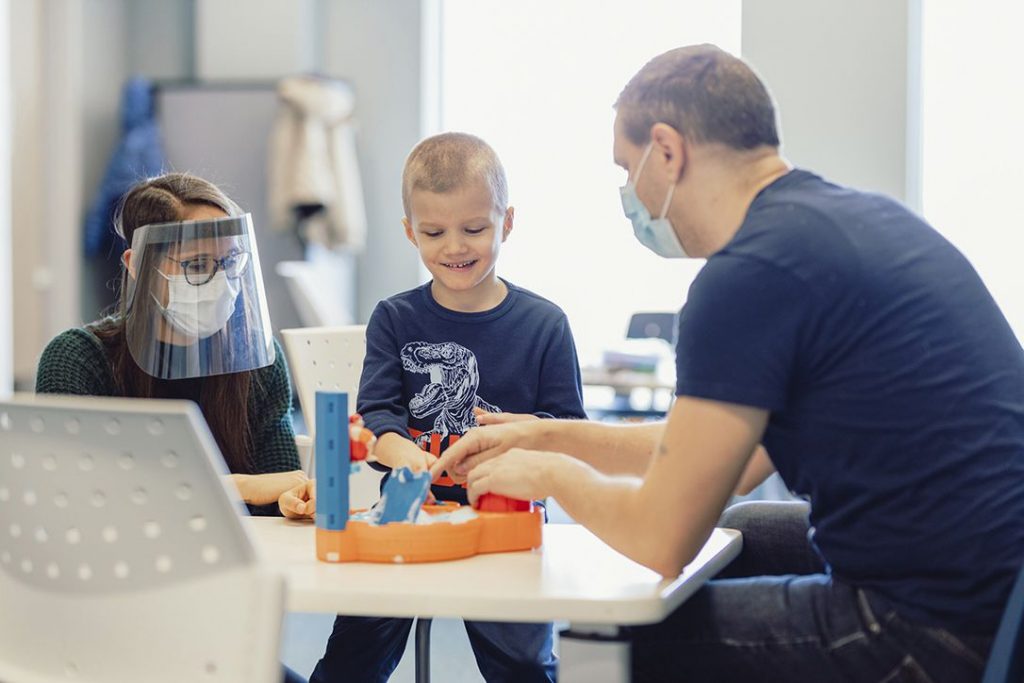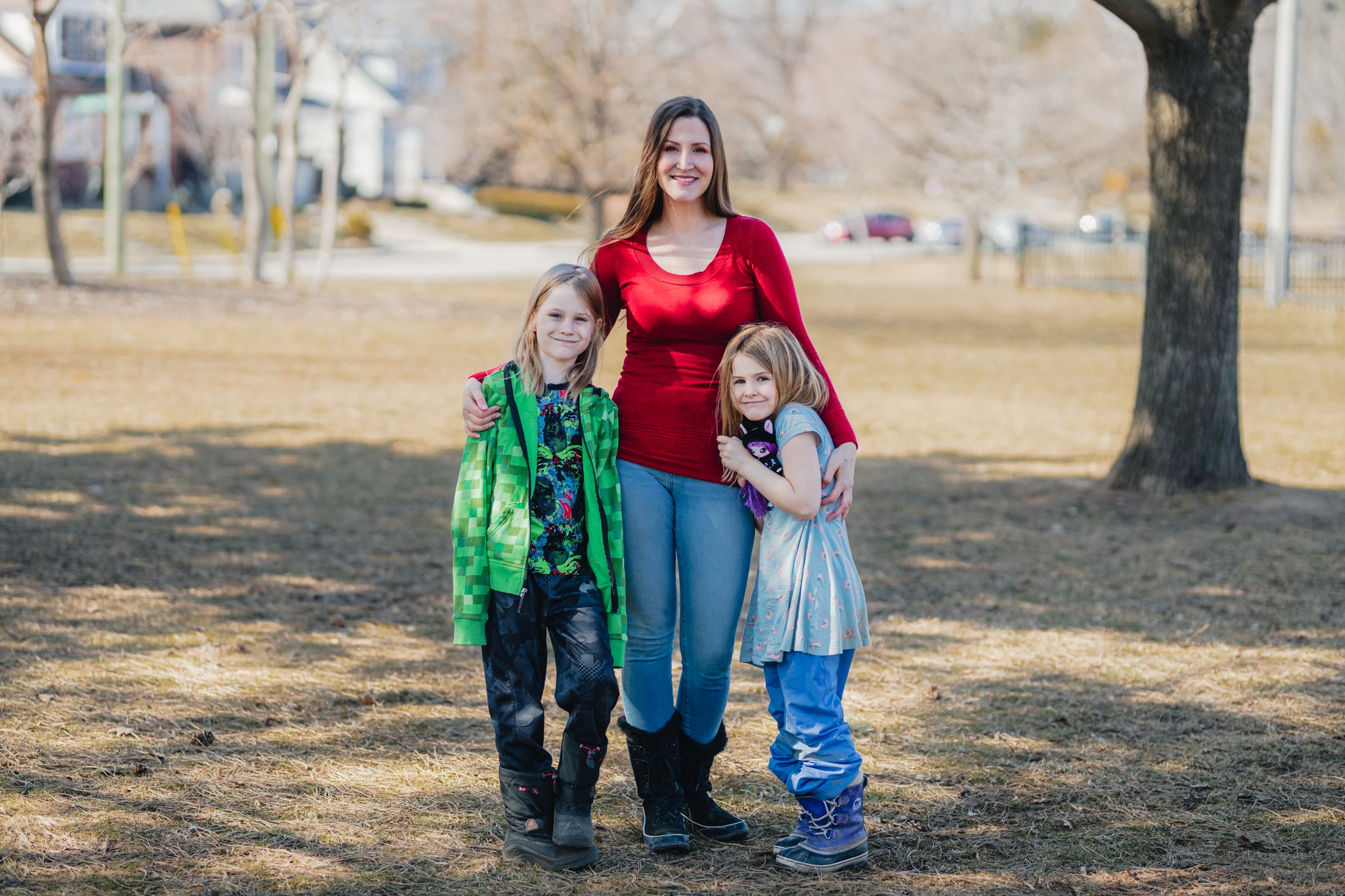
Children with Autism need acceptance and proactive treatment
Once your child has been formally diagnosed as having Autism, “give yourself time to consider what the new diagnosis means for you and your family,” says Dr. Caroline Roncadin, clinical director of the McMaster Children’s Hospital Autism Program. “Remember that your child is the same child you loved the day before they received their diagnosis.”
The 14th annual World Autism Day on April 2 is a chance for families in Ontario to learn more about the support they can get for free through the program. Many of the services are provided as part of the Ontario Autism Program’s Foundational Family Services and are available to families at no cost. Learn more about the services available here.
The healthcare community has made great strides helping those with Autism in the past decade, Roncadin says, yet many parents in Ontario still face long waitlists for diagnostic assessment and treatment. Children with Autism often also have special education needs that schools aren’t always able to meet.
Supporting children and their families
The McMaster Children’s Hospital Autism Program provides support for Hamilton-area children with Autism and their families. The program is part of the McMaster Children’s Hospital and operates out of the state-of-the-art Ron Joyce Children’s Health Centre.
A child with Autism usually starts showing early signs of the disorder when they’re 12–24 months old. However, it’s still all too common for healthcare providers to ask parents to take a “wait-and-see” approach when they first bring up their concerns.

“This not only delays diagnosis and access to treatment, but also tends to undermine parents’ confidence in their instincts,” says Roncadin.
If you think your child might have Autism, make an appointment with your family physician or pediatrician and share your observations and concerns about your child’s development and behaviour, advises Roncadin.
It’s important for children with Autism to be diagnosed early in life because once they’re diagnosed, “they can begin accessing treatment when the brain is still in the early stages of developing and most able to reorganize,” Roncadin says.
Understanding what Autism is
Autism is a lifelong neurodevelopmental disorder believed to be caused by a complex interaction of genes and environment.
One in 66 children ages 5–17 is diagnosed with Autism in Canada, according to recent statistics from the Public Health Agency of Canada. Autism is about four times more common in boys than girls.
“Research has shown it is not caused by bad parenting or vaccinations — and these myths are particularly damaging,” says Roncadin.
Some children are diagnosed later in life, around adolescence or adulthood, because they didn’t show clear signs of Autism when they were younger. Some people with Autism learn to speak on time and perform well in school in their earlier years, but experience symptoms of the disorder when social demands increase, Roncadin explains.
Features of Autism vary widely from person to person and over time — hence the “spectrum” in autism spectrum disorder.
Parents might start to wonder whether their child has Autism if they notice the child isn’t hitting certain developmental milestones or isn’t showing typical behaviours for children their age.
“It is important to recognize each person’s unique strengths and talents and avoid generalizing from one individual with Autism to the next,” Roncadin says.
Features of Autism include social issues, like problems with nonverbal communication and reciprocity — a child may not respond to greetings, make eye contact, or understand facial expressions. They may show repetitive speech or movements and resist changes in routine.
There are many other signs of Autism. Learn more about the disorder by watching an informational slideshow here.
What the McMaster Children’s Hospital Autism Program offers
Parents should also register their child with Autism with the Ontario Autism Program (OAP) and take full advantage of the range of services and supports available.
The McMaster Children’s Hospital Autism Program offers specific workshops for parents of newly diagnosed children, as well as a parent support group, sibling support group, and clinical and recreational groups for children with Autism.
Each child needs an individualized approach to learning based on their strengths. The McMaster Children’s Hospital Autism Program uses evidence-based practices, such as Applied Behaviour Analysis (ABA), to teach new and meaningful skills or reduce unwanted behaviours.
The program also conducts research to study new ways of providing assessment and treatment of Autism.
The McMaster Autism Research Team (MacART) is a collaboration between McMaster Children’s Hospital, Hamilton Health Sciences, and McMaster University. MacART brings together families, researchers, clinicians, educators and policymakers to improve Autism care for children and their families.
“We are very proud of our hospital’s and program’s involvement in meaningful research to impact practice and policy,” Roncadin says.
Originally published in The Hamilton Spectator, March 31, 2021.

